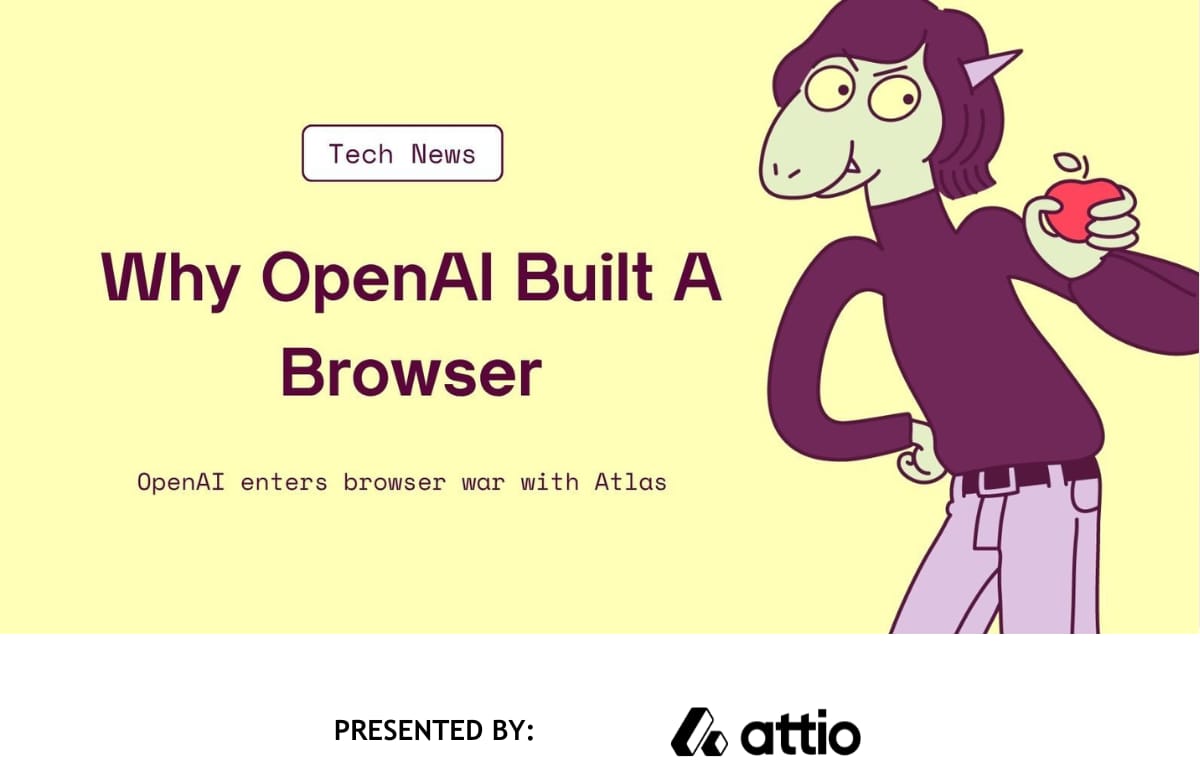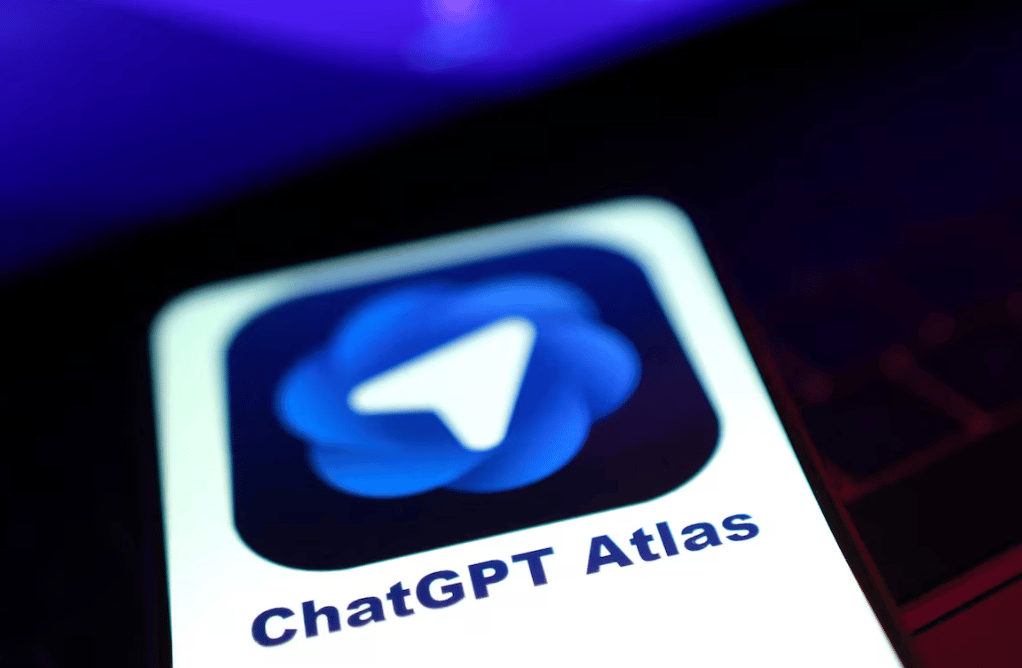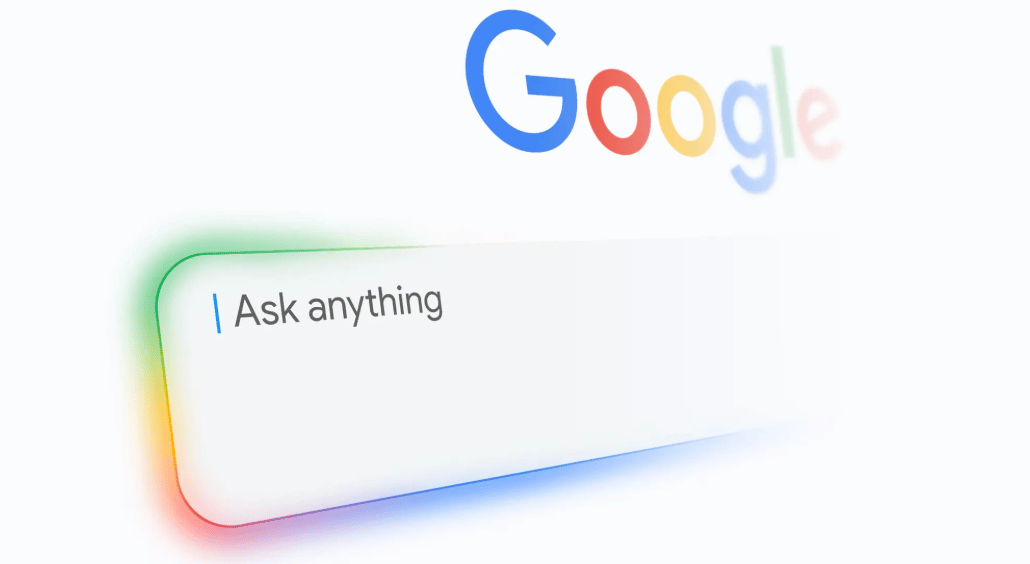- Roko's Basilisk
- Posts
- Why OpenAI Built A Browser
Why OpenAI Built A Browser
Plus: Firefox plans AI internet, Elon copies Wikipedia, PayPal joins ChatGPT.
Here’s what’s on our plate today:
🧠 Atlas browser redefines web use with agentic AI.
🗳️ Do you trust AI to manage your browsing?
🧪 Kagi, Flowshot, SigmaOS… browser experiments to try.
⚡ Grokipedia drama, PayPal x ChatGPT, Firefox’s AI internet.
Let’s dive in. No floaties needed…

Introducing the first AI-native CRM
Connect your email, and you’ll instantly get a CRM with enriched customer insights and a platform that grows with your business.
With AI at the core, Attio lets you:
Prospect and route leads with research agents
Get real-time insights during customer calls
Build powerful automations for your complex workflows
Join industry leaders like Granola, Taskrabbit, Flatfile and more.
*This is sponsored content

The Laboratory
Why OpenAI’s Atlas browser is a strategic move in its AI ecosystem
Ever since the release of ChatGPT, companies worldwide, including OpenAI, have been working on integrating the power of AI models into products that have a meaningful impact on users. Chatbots were the earliest products that demonstrated the power of large language models (LLMs). These were followed by writing tools, content generation assistants, coding assistants, customer service bots, productivity features in everyday apps such as email and documents, and AI-powered browsers.
Redefining search behavior
User behavior is changing remarkably in how people search for information. The rise of chatbots capable of retrieving information online has shifted users away from traditional web browsers and search engines.
In 2023, the MIT Technology Review published an article exploring how AI, particularly tools like ChatGPT, is transforming the way people search for information online.
Traditionally, users entered short keyword phrases into search engines such as Google or Bing and sifted through a list of links to find what they needed. With the emergence of AI chatbots powered by large language models, this behavior is rapidly changing. People are now framing their searches as natural, conversational questions and expecting direct, synthesized answers rather than a collection of web pages.
This shift reflects a growing preference for speed, simplicity, and context. In response, Big Tech, including Microsoft and Google, began integrating AI chat features into their search platforms, allowing users to interact with search engines more fluidly. Some, like Perplexity, released their own take on a web browser. And now, OpenAI has released its web browser built around its popular chatbot.
Atlas’s AI-first approach
OpenAI’s Atlas browser lets users interact with AI directly on any webpage, automate tasks, and access memory across sites. It also includes agent mode for research, planning, and productivity. According to OpenAI, the launch “marks a step toward a future where most web use happens through agentic systems, where you can delegate the routine and stay focused on what matters most”. On the surface, the browser is similar to Google’s Chrome, which controls 60% of the browser market, and Apple’s Safari, which comes preinstalled on all its devices. However, OpenAI’s browser focuses predominantly on AI, unlike other popular browsers, which have AI features baked into them.
According to early reviews, OpenAI’s Atlas browser, still in its early days, has the potential to change how users search and interact with the internet. The BBC described the browser as a “premium product” that requires users to pay a subscription fee to unlock its full potential.
The browser is unique in the sense that when a user clicks on a search result, it by default shows a split-screen with the webpage and the ChatGPT transcript, with the goal being to display a ‘companion’ at all times. The browser is also capable of summarizing features for webpages, as well as selecting text from an email and clicking a button to have ChatGPT tidy up the sentence in-line. However, it is important to note that the BBC called it a premium product because its agentic features are available only to subscribers of OpenAI’s premium tiers. A stark contrast to other browsers, which are traditionally available for free to users. This raises the question of why OpenAI is entering an already crowded market, albeit with AI at its core.
Data revenue and strategic control
OpenAI was founded as a not-for-profit to develop AI for the betterment of humanity. However, over the years, the company has pitched for a shift in its structure and is looking to develop a for-profit arm to ensure the flow of investment that will eventually make its mission of developing Artificial General Intelligence (AGI) a reality.
So far, the company has been valued at $500 billion with backers like Microsoft, Softbank, and Nvidia. It has a user base of roughly 800 million weekly active users. According to the New York Times, the company’s monthly revenue reached $300 million in August 2024, marking a 1,700% increase since early 2023. The company expected around $3.7 billion in annual sales, with projections suggesting revenue could soar to $11.6 billion in 2026. Most of the revenue came in due to the popularity of ChatGPT, with roughly 10 million ChatGPT users paying the company a $20 monthly fee.
However, despite the meteoric growth, it was looking at a loss of $5 billion in the same year after paying for costs related to running its services and other expenses like employee salaries and office rent. Which means the company needs to raise not just its subscriber count on ChatGPT, but also on other products to ensure it can bridge the shortfall, and continue to scale.
Even if the company manages to bridge the monetary gap, it still needs massive amounts of data to feed its models to improve their performance. According to the BBC, since the web is built for human use, and with Atlas OpenAI can monitor user behavior, like how they book train tickets, for example, it can learn how to better navigate these kinds of processes.
The browser also helps OpenAI reduce its reliance on third-party websites for data scraping, which has become a sore point between AI companies and online publishers, musicians, writers, and other media conglomerates.
Additionally, having its browser with a good user base can also help OpenAI make money through advertisements, something the company has admitted it is not averse to doing in the future.
So, while Atlas can help OpenAI sidestep some difficult situations, it also pitches the company directly against behemoths like Google.
Facing giants in the browser war
Chrome remains overwhelmingly dominant in the browser market, with roughly 71.8% global share as of September 2025. Because it’s deeply integrated into the Google LLC ecosystem (search, Android, Google services), it has huge advantages in user base, data capture, and default placement. 
Similarly, Safari benefits from being Apple’s default browser, and Microsoft Edge, bolstered by the integration of Copilot and Windows, also maintains a strong foothold. Against this backdrop, Atlas faces the challenge of convincing users to switch from browsers they’ve used for years with all their saved passwords, bookmarks, and habits, to something entirely new.
Beyond the established giants, Atlas also faces competition from emerging AI-native browsers such as Comet by Perplexity and Dia from The Browser Company. Both focus on blending traditional browsing with AI-powered assistance, automated summarization, and research features similar to what Atlas promises. What sets Atlas apart is its native integration with ChatGPT’s conversational intelligence, memory features, and agent mode. However, how far these manage to sway users remains to be seen.
Balancing innovation and trust
For OpenAI, the real challenge then lies in balancing innovation with trust and reliability. Experts have already raised concerns about AI browsers regarding data privacy, hallucinations, and security vulnerabilities such as prompt injections.
For Atlas to succeed, it will need to demonstrate that its AI-first approach meaningfully improves productivity without compromising safety. Despite steep competition, OpenAI’s brand strength and the growing demand for assistant-style browsing give Atlas a real chance to redefine how users engage with the web.


Quick Bits, No Fluff
Grokipedia vs. Wikipedia: Elon Musk’s xAI launches Grokipedia, raising copycat concerns from Wikipedia.
ChatGPT gets PayPal: PayPal now lets users complete purchases directly inside ChatGPT chats.
Firefox AI vision: Mozilla says AI will “reshape the internet”—and it’s planning accordingly.

What if you could lower your tax bill and stack Bitcoin at the same time?
By mining Bitcoin with Blockware, you can. Bitcoin Miners qualify for 100% Bonus Depreciation. Every dollar you spend on mining hardware can be used to offset income in a single-tax year.
Blockware's Mining-as-a-Service enables you to start mining Bitcoin without lifting a finger.
You get to stack Bitcoin at a discount while also saving big come tax season.
*This is sponsored content

Thursday Poll
🗳️ Do you trust an AI-powered browser to manage your online activity? |

3 Things Worth Trying
Kagi: Private, premium search engine focused on quality results and zero ads.
Flowshot AI: Automate browser tasks and workflows using text or voice commands.
SigmaOS 2.0: A workspace browser that merges tabs, tasks, and AI summaries in one.
Meme of the Day
Non-technical founder fixing bugs
— startup bullshit (@startupbullsht)
4:19 PM • Oct 26, 2025

Rate This Edition
What did you think of today's email? |






